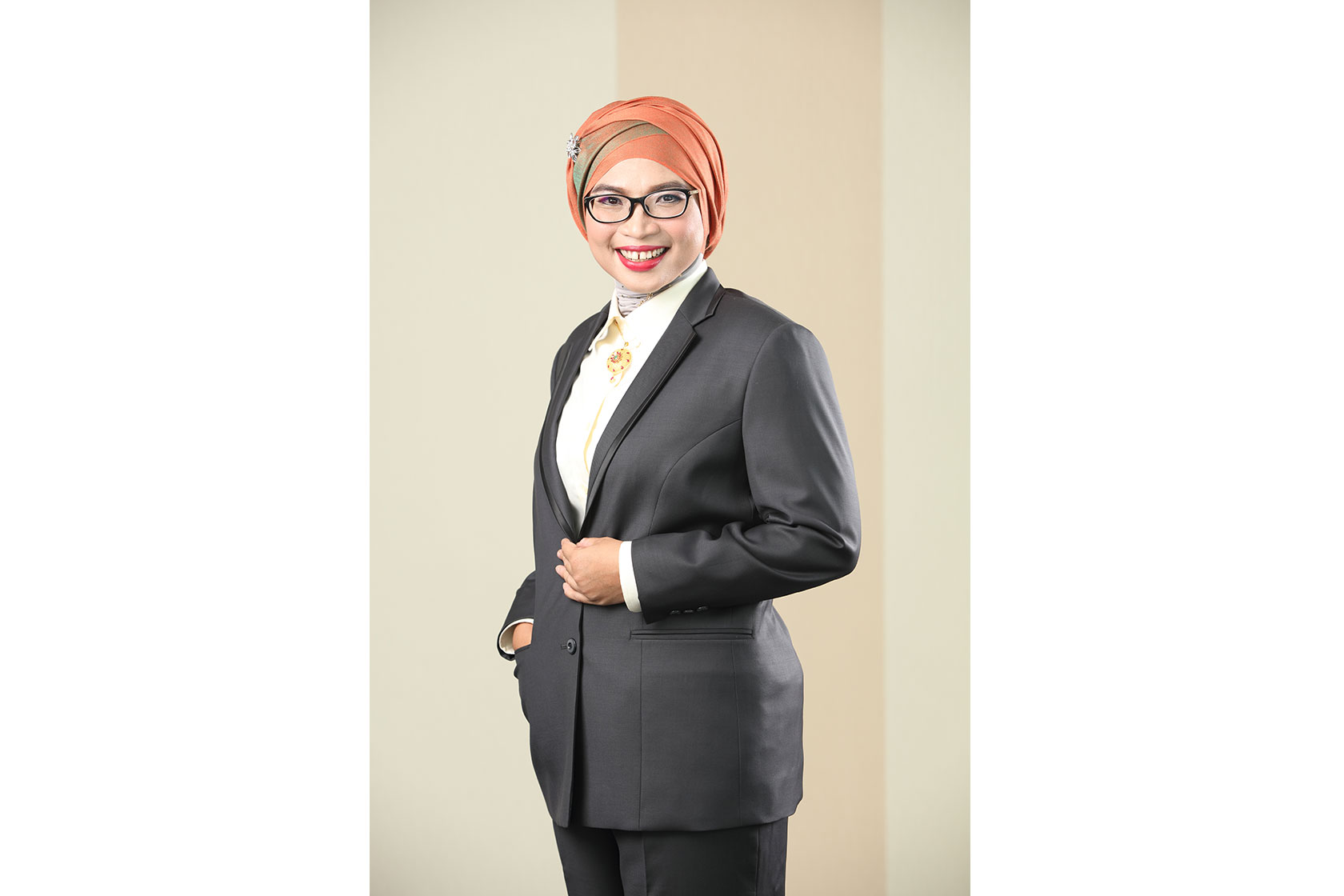Sitta Izza Rosdaniah and her husband, Nurhadi Siswanto, shared the same academic dream of obtaining a doctoral degree, believing it would open more opportunities to improve their respective careers. Sitta is currently the Head of the Division of Economic & Industry Research at the Ministry of State-Owned Enterprises (SOEs), whilst her computer scientist husband is the Head of the Industrial and Systems Engineering Department at Institut Teknologi Sepuluh Nopember in Surabaya, East Java.
After many attempts to get a scholarship, she finally succeeded in 2006, being a recipient of the Australian Leadership Awards to study at the Arndt-Corden Department of Economics, Crawford School of Public Policy at the Australian National University. Sitta left for Canberra in 2007 and brought along her toddler son. Her husband joined them a year later through the Endeavour Leadership Program and studied Computer Science at the University of New South Wales.
Looking back, Sitta sees the experience of a living laboratory in multitasking management as a woman, a student, and a mother. She felt immense gratitude that she received incredible assistance and support from the university, the ANU’s Postgraduate and Research Students Association (PARSA), the Indonesian Students Association, and a network of international students.
“The university provided a series of supports, including childcare, and the mental health care service was phenomenal in assisting students,” she said.
“I was active in my local community, too – I befriended my neighbours, joined associations such as Greening Australia, and became a part of my son’s school committee. I felt that I was a bridge, connecting Australia and Indonesia, but I also needed their help, too. When my son suddenly became ill at school and both my husband and I had a seminar to attend, they were the ones who helped us out,” she added.
For her, the main challenge, in the beginning, was switching her frame of mind from civil servant to academician/researcher.
“I wasn’t an academician and research was not part of my work. I was a civil servant whose realm was not planning but execution. I had to do a lot of adjustments,” she said.
It was a Herculean task but certainly pays off upon her return to the Ministry of SOEs. Whilst a PhD is not a requirement for most civil servants, for Sitta, it has been highly beneficial in the way she approached the circumstances at hand.
“A case study in my PhD dissertation was related to electricity. I used this when we were planning the road map for industrial estates, which included road facilities and electricity. When the government came out with its policies, our industrial estates were well prepared. In Sumatra, for example, the development of road infrastructure was followed by the establishment of industrial estates,” she said.
The network with research and innovation institutions has also helped in attaining the goals set by the Minister of SOEs.
“This year, some SOE staff took part in the Sustainable Agri-Food System Short Course program run by the Australia Awards in Indonesia. I am also looking for a network to establish collaborations between SOEs and universities in Australia,” she said,
“We’ve established the IGTI Program – Indonesia Global Talent Internship, an opportunity for Indonesian students around the world to intern in an SOE. We are spearheading the campaign to strengthen the pool of Indonesian talents,” Sitta explained.
Sitta has continued to maintain the network with other Australian alumni, particularly those who studied at ANU, as well as with the Australian Embassy.
“Maintaining the values that we learnt to provide benefits to others means that our alumni are mutually supportive and generously share information with each other,” she asserted.
Overcoming Reverse Culture Shock
Before Sitta and her husband moved to Australia, they had agreed on how they would divide parental and household responsibilities daily. Their approach was pragmatic and down-to-earth, starting with being more flexible and adaptive with food. Food was for nourishment, and it did not have to be what they usually ate in Indonesia. She said it helped them overcome culture shock.
Both Sitta and Nurhadi were determined to have a good work-life balance, focusing on their studies without sacrificing their social life. They encouraged their son to make friends with other children, learn about Australia, and participate in school and local activities. Now that they return home, their son still sees Australia as a second home.
The family, however, experienced a bit of a reverse culture shock when they came back to Indonesia. It was disheartening for them to see people throwing garbage and crossing the street carelessly. The situation was even more difficult for their son.
Nevertheless, they agreed that they would continue to implement the valuable experiences and learnings they had in Australia, not only for themselves but for the community.
“We taught him to be tolerant and use persuasion if he wants to influence others. At first, he experienced some sort of bullying at school. After we talked it over, we agreed that the solution was for him to become part of the student organisation and he successfully implemented eco-green programs at his school,” Sitta said.
In this digital era, it has been easy for their son to maintain ties with his old teachers and friends even 11 years after they left Canberra.
“The Qantas ad campaign as the safest airline in the world had inspired him to become an aeronautical engineer. He hopes to study in Australia once he graduates from high school,” Sitta said.


 Sitta Izza Rosdaniah on Juggling Motherhood, PhD Studies, and Networking
Sitta Izza Rosdaniah on Juggling Motherhood, PhD Studies, and Networking
